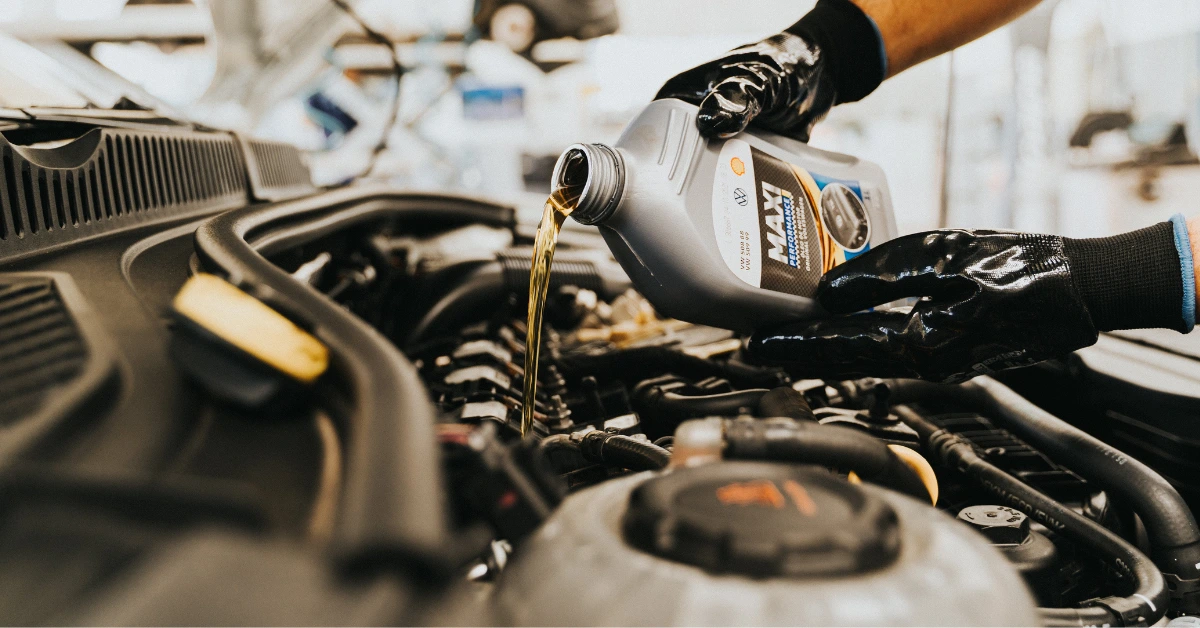Best Oil for Cars
Whether you’re after longevity, performance, or fuel efficiency, our selection has got you covered.
1.Castrol Edge Euro Blend
Our #1 Pick
Pros
💎 Maintains engine performance under extreme pressure
💎 Compatible with a wide range of models
💎 Eco-friendly, carbon-neutral production
Cons
🚩 Not suitable for vehicles requiring non-specified oil grades
🚩 Limited availability in certain regions
This fully synthetic formula kept engines running smoothly even through a series of high-stress conditions.
It meets a broad spectrum of manufacturer specifications, from BMW to VW, making it a versatile pick.
We’re conscious about our environmental impact, so we were pleased to learn that Castrol Edge Euro 5W-30 K’s production is carbon-neutral.
Castrol GTX Classic
Pros
💎 Offers superior wear protection with its high zinc content
💎 Maintains a strong oil film even in the most challenging conditions
💎 Complements a range of vintage and performance engines
💎 Specialized formulation
Cons
🚩 Not suitable for engines with catalytic converters
🚩 Limited to certain older and high-performance builds
It’s a 20W-50 viscosity oil that has seen our classic’s engine running cooler and operating with such finesse, it’s as if the car rolled right out of a time capsule.
The high zinc levels are a boon for performance enthusiasts who understand the value of keeping their investments protected against the rigors of intense driving.
Castrol GTX Full Synthetic
Pros
💎 Impressive wear protection
💎 Combats sludge effectively
💎 Great for challenging driving conditions
Cons
🚩 Not suitable for all vehicle types
🚩 May differ in performance in extreme temperatures
Isn’t it comforting when you pour something into your engine and imagine it working magic against the unseen foes of wear and tear? That’s the vibe I got from this oil.
Valvoline High Mileage Protection
Pros
💎 Noticeably reduced engine leaks after use
💎 Provides a quieter and smoother engine operation
💎 Enhanced protection that goes beyond typical oil standards
Cons
🚩 May not be necessary for newer cars with lower mileage
🚩 Packaging may be less sturdy than traditional oil containers
We’ve rolled past the 75,000-mile marker and it seemed about time to give the car something special.
The reality of maintenance is that you often get what you pay for, and in this case, the investment means guarding the engine against the aggressors of wear and tear.
Mobil Full Synthetic Motor Oil
Pros
💎 Keeps engines exceptionally clean from sludge
💎 Impressive wear protection enhances engine life
💎 Maintains performance even in extreme temperatures
💎 High Quality
Cons
🚩 May be overkill for older, low-mileage vehicles
🚩 Not ideal if your car specifies heavier oil
The purity of the synthetic formulation was evident as the engine purred smoothly, hinting at the high-quality protection it was now enjoying.
As someone who prioritizes my vehicle’s health and longevity, I saw it as investing in the future of my beloved car.
Mobil 1 European Car Formula
Pros
💎 Provides strong protection against wear and tear, enhancing engine life.
💎 Improves engine performance, even under severe conditions.
💎 Suitable for a variety of luxury car brands, including Mercedes-Benz and Audi.
Cons
🚩 May not be necessary for older models or less demanding engines.
🚩 Comes in a 6-quart quantity which might be excessive for a single oil change.
The engine runs as if it’s in its prime – smooth and powerful. It’s as if every part is working in harmony, reducing the friction you didn’t even realize was there before.
This oil’s high-rated performance isn’t surprising given Mobil’s reputation. Our last oil change interval was stretched without a hitch, and it feels reassuring to have a product that’s engineered to last.
Valvoline Extended Protection
Pros
💎 Provides top-tier engine protection against wear and heat
💎 Ensures cleaner engine with less buildup
💎 Formulated for optimal performance in modern engines
Cons
🚩 Priced higher compared to regular oils
🚩 May be over-engineered for older or less demanding engines
🚩 The full benefits might not be noticeable in very mild driving conditions
It’s clear that its advanced formula is designed to tackle extreme temperatures and combat deposit buildup with ease.
Regular use of Valvoline Extended Protection has shown a notable decline in the frequency of maintenance needs.
Castrol EDGE High Mileage
Pros
💎 Enhances engine performance even in older vehicles
💎 Formulated to reduce engine wear and deposits
💎 Noticeably improves leak protection and reduces burn-off
Cons
🚩 Not suitable for all engine types
🚩 May require more frequent changes in certain vehicles
On another occasion, our BMW X3, which had been a faithful companion for miles uncounted, seemed to hum with appreciation after we treated it to this Castrol blend.
With vehicles relying heavily on their engine’s well-being, especially after hitting the illustrious 75,000-mile mark, finding the best oil for cars like ours felt rewarding.
Valvoline 4-Stroke Powersport Oil
Pros
💎 Fortified against wear up to 50% more than standard options
💎 Provides up to 8X the standard rust defense
💎 Designed to keep engines clean with powerful detergents
Cons
🚩 Specifically tailored for small engines, not typical car engines
🚩 Limited reviews available could mean less user feedback for now
The robust defense against the wrath of outdoor elements was evident.
With this oil, we’ll notice less sludge and dirt accumulation, even when tackling the muddiest of trails or the most powdery snow-covered hills.
It’s crucial to remember this isn’t a one-size-fits-all solution.
Buying Guide
Finding the best oil for cars can feel like navigating a maze with countless options and types. Fear not, because we’ve got a straightforward guide to help you select top-notch lubrication for your ride!
Understand Viscosity Ratings
Viscosity is a crucial factor when choosing motor oil. It indicates the oil’s thickness and how well it flows at different temperatures:
- Cold Weather: Look for a lower first number (e.g., 5W-30), indicating easier cold starts.
- Warm Weather: A higher second number (e.g., 10W-40) promises better high-temperature stability.
Synthetic vs. Conventional
Synthetic oils generally offer superior performance:
- Performance: Higher resistance to breakdown and better at extreme temperatures.
- Intervals: Longer intervals between changes compared to conventional oils.
| Synthetic | Conventional | |
|---|---|---|
| Longevity | High | Moderate |
| Price | Higher | Lower |
| Performance | Better | Standard |
Additives and Your Engine Needs
Modern oils include various additives to enhance their properties:
- Engine Protection: Look for anti-wear additives like zinc and phosphorus.
- Cleanliness: Detergents and dispersants in the oil help keep engines clean.
Remember, while choosing the oil, match it with your vehicle’s specific needs based on age, usage, and manufacturer recommendations.
API and ACEA Standards
Ensure the oil meets current industry standards:
- API (American Petroleum Institute): Symbol indicates quality and performance (e.g., API SN, SP).
- ACEA (Association of Constructeurs Européens de l’Automobile): Reflects European standards for engine oil.
While we know your time is priceless, keep this information handy and selecting the best oil for cars will be straightforward.
I hope we could make your search a little bit easier, if you have still more questions leave us a comment or write us a mail, till then see you next time when it says again…
…Let´s Ride!















